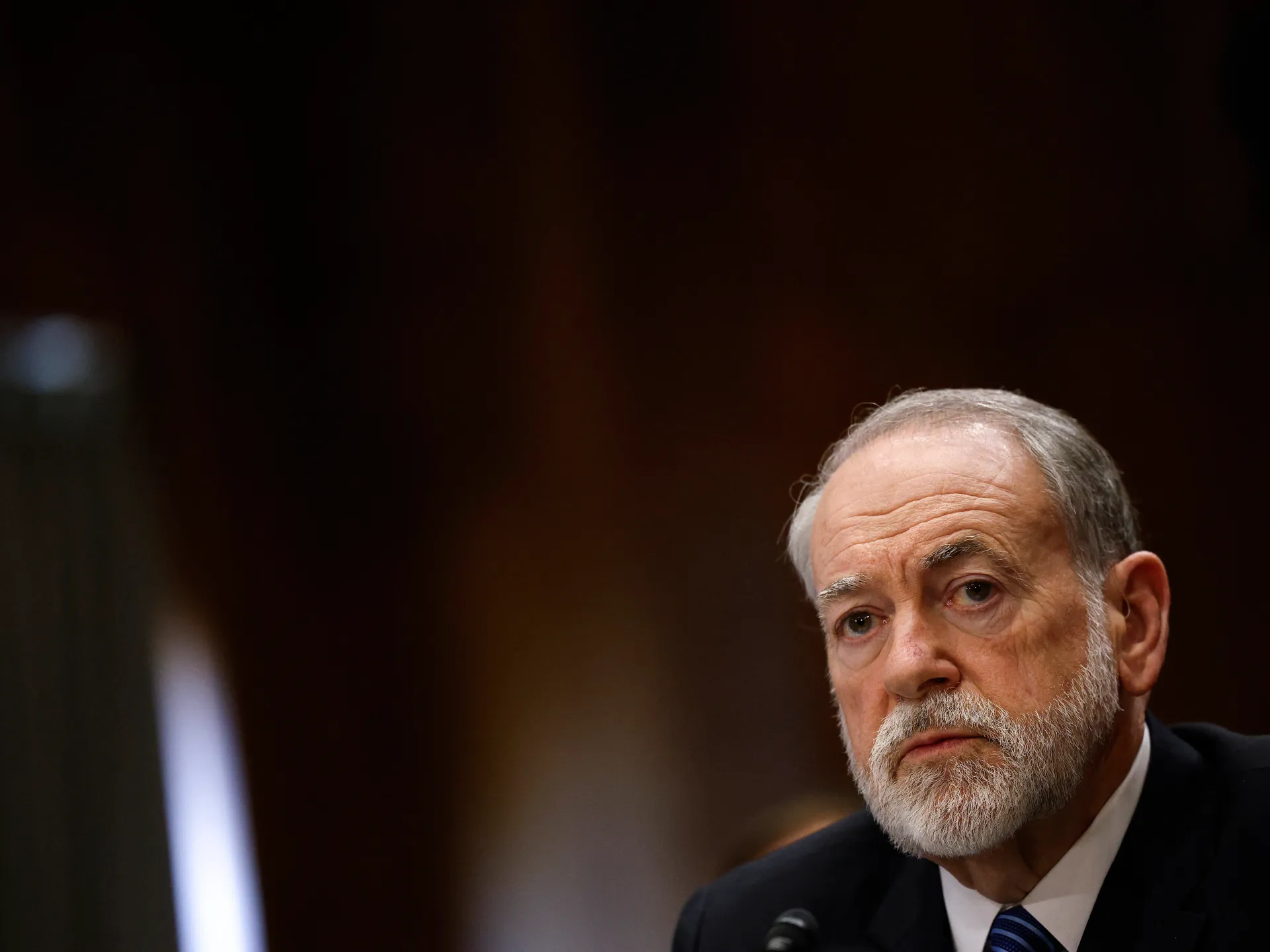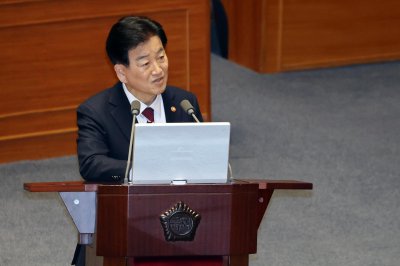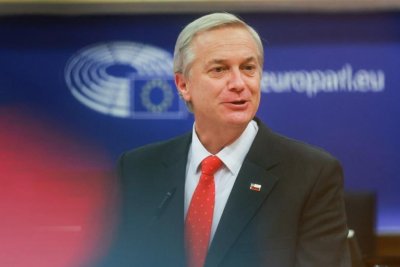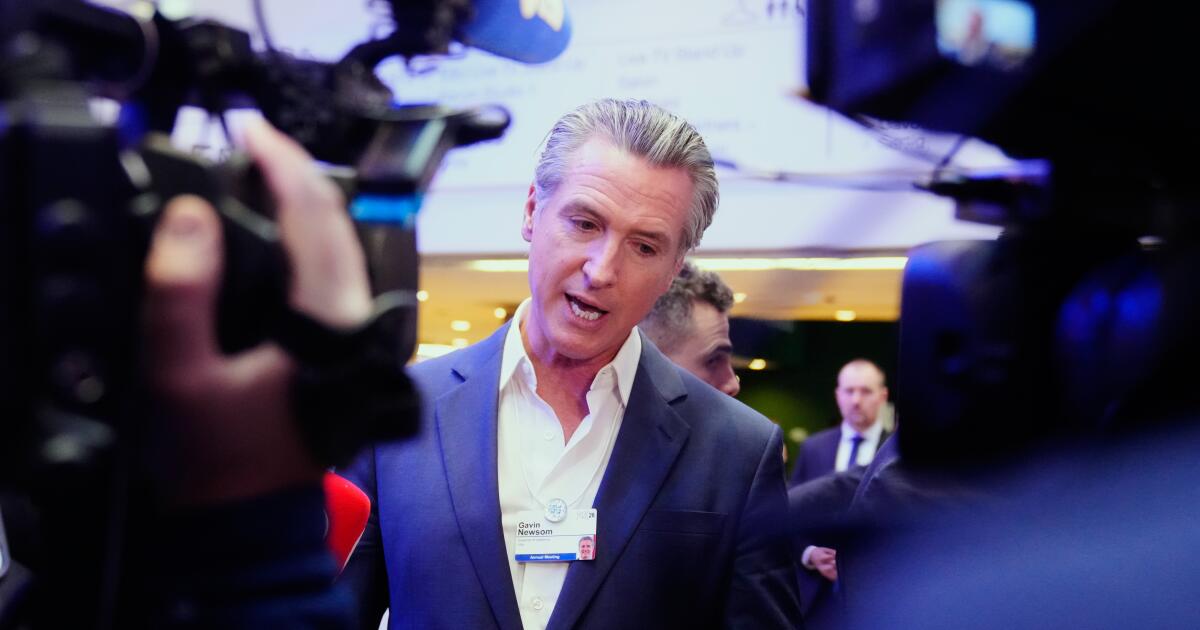‘Absurd and provocative’: Huckabee faces firestorm for Israel border stance | Israel-Palestine conflict News
Egypt, Jordan, Saudi Arabia, denounce US ambassador’s remarks suggesting Israel has right to much of the Middle East.
United States Ambassador to Israel Mike Huckabee has triggered an avalanche of criticism from Arab and Muslim countries after suggesting Israel has a right to expand its territory across a large swath of the Middle East.
Huckabee delivered the remarks during a sit-down interview with US commentator Tucker Carlson, broadcast on Friday, as he was pressed about the geographical borders of Israel.
Recommended Stories
list of 3 itemsend of list
Carlson asked Huckabee, a self-professed Christian Zionist and staunch supporter of Israel, to clarify his stance on the Biblical promise of the land spanning the area between the Euphrates River in Iraq and the Nile River in Egypt to the descendants of Abraham, and if the modern Israeli state had the right to claim that lineage.
“It would be fine if they took it all,” said Huckabee.
Such territory would encompass modern-day Lebanon, Syria, Jordan and parts of Saudi Arabia.
The US ambassador later appeared to walk back the claim, saying it was “somewhat of a hyperbolic statement”. He also said Israel was not looking to expand its territory and has a right to security in the land it currently holds.
‘Extremist rhetoric’
Huckabee’s comments sparked immediate backlash from neighbouring Egypt and Jordan, Saudi Arabia, the Organisation of Islamic Cooperation and the League of Arab States, which in separate statements called them “extremist”, “provocative” and “not in line with Washington’s official position”.
Saudi Arabia’s foreign ministry described Huckabee’s comments as “extremist rhetoric” and “unacceptable”, and called for the US Department of State to provide clarification.
Egypt’s Ministry of Foreign Affairs called the remarks a “blatant violation” of international law, adding that “Israel has no sovereignty over the occupied Palestinian territory or other Arab lands.”
Jordan’s foreign ministry dismissed them as “absurd and provocative,” a violation of diplomatic norms and “an infringement on the sovereignty of states in the region”.
“Statements of this nature — extremist and lacking any sound basis — serve only to inflame sentiments and stir religious and national emotions”, the League of Arab States also said in a statement.
Huckabee, whom US President Donald Trump nominated as ambassador in 2024, has long opposed the idea of a two-state solution for Israel and the Palestinian people, and denied the existence of an illegal Israeli occupation of the West Bank. Back in 2008, Huckabee went so far as to question Palestinian identity altogether, saying, “There’s really no such thing as a Palestinian.”
In 2024, the International Court of Justice ruled that Israel’s occupation of Palestinian territory is illegal and must cease immediately.
But Israeli law does not clearly demarcate the country’s borders. Israel also occupies the Golan Heights in Syria, which it illegally annexed in 1981.
The US is the only country that recognises Israel’s claimed sovereignty over the Syrian territory, and only since 2019, during Trump’s first term as president.
After its 2024 war with Hezbollah, Israel also set up military outposts in five points inside Lebanon.
Some Israeli politicians, including Prime Minister Benjamin Netanyahu, have openly promoted the idea of a “Greater Israel” with expanded borders.





